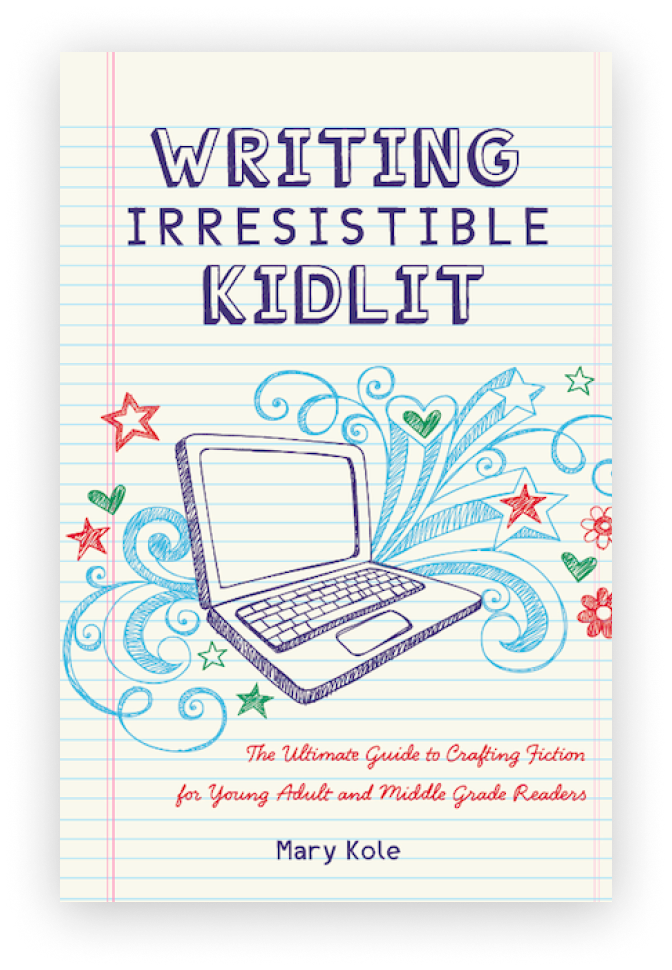Fitting Smart Words
Into Your Writing
By Mary Kole
Mary Kole is a former literary agent, freelance editor, writing teacher, author of Writing Irresistible Kidlit, and IP developer for major publishers, with over a decade in the publishing industry.
We’ve all seen a character, book, or article full of smart words, or elevated vocabulary. Sometimes, this is appreciated and appropriate. At other times, the character or person wielding smart words or “SAT words,” as they’re sometimes called, is the subject of some well-deserved ribbing. Sometimes, smart words enhance conversation and writing. At other times, they are dense, unenjoyable, and seem like they’re trying too hard. How should you use elevated words when creating content? What’s the point of smart words? In this article, I’ll explore smart words—what they are, why they can be beneficial, and when to use or not use them.
What Are Smart Words?
The term “smart words” isn’t necessarily industry jargon. It’s a way of referring to elevated writing vocabulary. Smart words are less common words that may be unfamiliar to readers. Examples include “expatiate,” “grandiloquent,” and “vituperate.” You might remember them from English class in high school. These kinds of words can make your writing more interesting but can also add a veneer of challenge and hoop-jumping for the reader. So should you use them? How? When?
Using smart words in your writing can be a wonderful thing, when you are able to find the perfect word and the perfect meaning for what you’re trying to say. It’s amazing when there’s that perfect word that allows you to express yourself simply—and save you a paragraph of explanation. Smart words can also help writers create a more vivid image for the reader or describe a character or scene more fully.
If used correctly, smart words can improve the quality of your writing by making it more descriptive, incisive, streamlined, and appealing. Additionally, utilizing this type of elevated language shows you have put thought into what you are writing. As long as they’re used tastefully and strategically, smart words are a great way to make your writing stand out … and they’re an outlet for you to have some creative fun.
The Problem With Smart Words
However, as with any advice on writing voice, I would recommend using smart words only to enhance what you’re saying and get your ideas across. Don’t use smart words for the sake of using them, because you think you “have to,” or to create an impression that you’re smart, wonderful, witty, educated, etc. (even if you are, indeed, all of those things).
While using smart words has potential benefits, there are certain instances where elevated language might distract from your writing, rather than enhancing it. For example, if your goal is to write something that is simple and conversational or quickly conveys your message—like a news story or instruction manual—it's probably best to skip the fancy language. Simple and clear word choices will work best in these cases.
Additionally, if you feel like you need to show off with smart words just to prove yourself as a writer, cut it out. Aim your skills at your storytelling, plotting, character creation, and pacing, all of which are more important and impressive than your vocabulary.
A bunch of fancy words strung together aren’t going to get your foot in the door. In fact, literary agents, publishers, and readers have seen it before, and they’re not impressed. Instead of making a confident and cogent impression, smart words abuse has the opposite effect—it often marks a writer as an amateur who lacks self-assurance … and self-awareness.
Smart words can add flair to your writing while avoiding “needless words” (to quote Strunk and White). However, be judicious about when and how you utilize such language. Instead of relying on smart words every time you write something, focus on crafting well-written stories. There are many elements and skills you can add to your writer tools, and an impressive vocabulary shouldn’t be a priority.
This post contains affiliate links.

Click here to purchase Writing Irresistible Kidlit, my book on fiction craft for MG and YA novels, out from Writer's Digest Books. This will show you my writing craft philosophy and give you lots of valuable advice, including tips for the novel revision process and self-editing. There are over 35 example novels cited and discussed throughout. It’s a valuable resource for any writer’s toolkit.
Click here to purchase Irresistible Query Letters, my book on query letters, including over forty examples with comprehensive notes on each one. There’s a ton of submission advice, best practices, and insider information in these pages, and you’ll really enjoy seeing what other writers are doing in the slush.
Click here to purchase Writing Interiority: Crafting Irresistible Characters, my book on interiority and character creation. Explore your protagonist’s thoughts, feelings, reactions and interpretations, expectations, and inner struggles to create a rich, immersive experience. This guide will empower you to create characters who live and breathe on the page, fostering an unbreakable bond with your audience.





